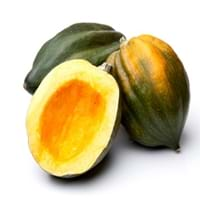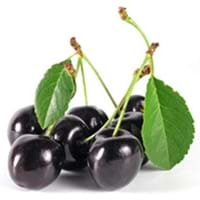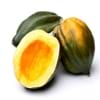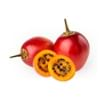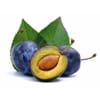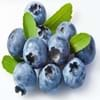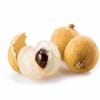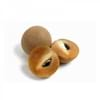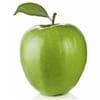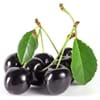Health Benefits
Anti-inflammatory properties, Arthritis treatment, Regulates Blood Sugar
Anti-aging benefits, Anti-inflammatory properties, Arthritis treatment, Cancer prevention, Helps body to rest and sleep, Lower blood pressure, Prevents diabetes, Prevents strokes, Reduces risk of heart disease
General Benefits
Boosts immune system, Controls blood sugar levels, Digestive aid
Fights against infections, Fights Tooth Decay, Helps in weight loss, Relieves pain, Treatment of migraine
Skin Benefits
Nourishes skin, Protects skin from oxidative stress
Anti-aging benefits, Fairness, Hydrates skin, Prevents skin cancer, Skin repair, Treatment of acne
Hair Benefits
Prevents hair loss, Promotes longer and healthier hair, Regulates hair growth
Cure for hair loss, Increasing hair volume, Prevents hair loss, Strengthening of hair
Allergy Symptoms
Asthma, Red rash, Swelling of mouth, tongue or lips
Abdominal cramps, Anaphylaxis, Diarrhea, Hoarseness, Itchy eyes, Nausea, Pollen allergies, Sore eyes, Vomiting, Watery eyes, Wheezing
Side Effects
Diarrhoea, Vomiting
High doses of black cherry bark can be poisonous and even fatal.
Lactating Women
Yes
Not Available
Best Time to Eat
Along with meal, As a snack in the late afternoon, Don't eat after meal, Eat the fresh ones, avoid mixing with any other foods, don't eat after meal.
Best if taken as a breakfast (or empty stomach), Don't eat after meal, Morning time (before lunch)
Vitamin B1 (Thiamin)
Not Available
Vitamin B5 (Pantothenic Acid)
Vitamin B6 (Pyridoxin)
Not Available
Vitamin B9 (Folic acid)
Not Available
Vitamin C (Ascorbic Acid)
Not Available
Phytosterol
Not Available
Calories in Fresh Fruit with Peel
Calories in Fresh Fruit without Peel
Not Available
Not Available
Calories in Frozen Form
Not Available
Calories in Dried Form
Not Available
Calories in Canned Form
Not Available
Calories in Juice
Not Available
Calories in Jam
Not Available
Calories in Pie
Not Available
Varieties
Bush Table Queen, Heirloom Table Queen, Festival Hybrid, Early Acorn Hybrid, Table Ace, Ebony and Cream of the Crop
alabamensis, capuli , eximia and hirsuta
Color
Dark green, Green-yellow, Orange green
Black
Inside Color
Yellow
Maroon
Taste
Sweetish
Sweet-Sour
Origin
Central America, North America, Unknown
North America
Soil Type
Well-drained
Not Available
Climatic Conditions
Cold, Sunny
Cold
Facts about
- It was named as Acorn Squash for its resemblance to a large ribbed acorn.
- It is said that squash was being grown in Mexico as long as 10,000 years ago.
- It was the first food cultivated by native American Indians.
- Black cherry is deciduous tree that belongs to the family of roses.
- Some foods made from Black Cherry fruit include jelly and wine.
- Inner bark of black cherry is used in the manufacture of cough syrup.
Top Producer
China
Turkey
Other Countries
Egypt, India, Iran, Italy, Mexico, Russia, Turkey, Ukraine, United States of America
Austria, Bulgaria, Chile, China, France, Greece, Iran, Italy, Macedonia, Poland, Romania, Russia, Serbia, Spain, Syria, Ukraine, United States of America, Uzbekistan
Top Importer
Costa Rica
France
Top Exporter
United States of America
Turkey
Botanical Name
Cucurbita Pepo
Prunus Serotina
Synonym
Winter Squash
wild black cherry, rum cherry and mountain black cherry
Subkingdom
Tracheobionta
Tracheobionta
Division
Magnoliophyta
Magnoliophyta
Class
Magnoliopsida
Magnoliopsida
Subclass
Dillenhidae
Rosidae
Order
Cucurbitales
Rosales
Family
Cucurbitaceae
Rosaceae
Generic Group
Not Available
Cherry
Compare Acorn squash and Black cherry
It is important compare Acorn squash and Black cherry as both the fruits have a different nutritional value. Their comparison can be done on the basis of their vitamin and mineral content, calories, benefits as well as characteristics, making it easier for us to choose the best fruit for our diet. Their general health benefits are as follows:
Acorn squash Benefits: boosts immune system, controls blood sugar levels and digestive aid.
Black cherry Benefits: fights against infections, fights tooth decay, helps in weight loss, relieves pain and treatment of migraine.
Fruits are also used as a remedy for various hair problems. The hair benefits of Acorn squash are: prevents hair loss, promotes longer and healthier hair and regulates hair growth and hair benefits of Black cherry are: cure for hair loss, increasing hair volume, prevents hair loss and strengthening of hair. Some fruits are known to cause allergic reactions. The allergy symptoms of first fruit are: asthma, red rash and swelling of mouth, tongue or lips and the symptoms of second fruit are: abdominal cramps, anaphylaxis, diarrhea, hoarseness, itchy eyes, nausea, pollen allergies, sore eyes, vomiting, watery eyes and wheezing. Get sorted Acorn squash vs Black cherry comparison with the help of fruit comparison tool by fruitvs.com.
